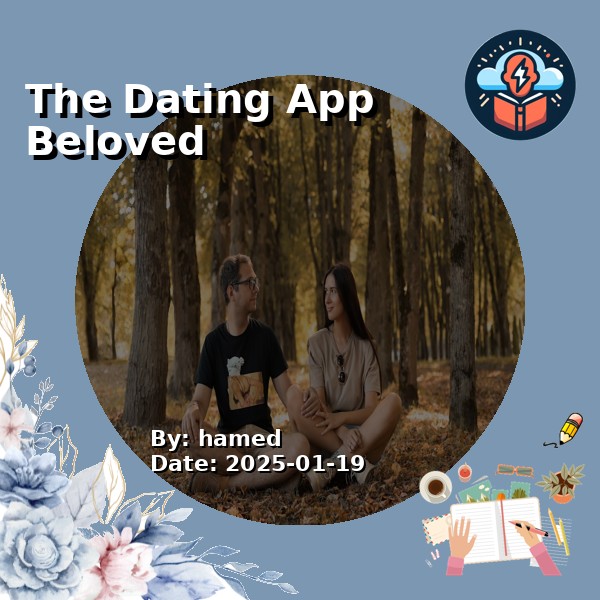It started with a bug.
Ramin, a software developer for a popular dating app, had always taken pride in the flawless functionality of the system. But recently, a glitch had begun to repeat itself. Every time a user swiped right on someone they were interested in, the app matched them with their own profile. It seemed like a harmless bug, one that would be fixed in a few lines of code, but something about it unsettled him.
He dove into the system, tracing lines of code and debugging the algorithm. The app was simple—users swipe left or right on profiles, then match with someone if there was mutual interest. But now, inexplicably, the matches were coming back as duplicates.
At first, the users reported confusion. Why had they been matched with themselves? But then, something curious began to happen. They didn’t just laugh it off or shrug it away—they started messaging their own profiles. They began to reflect on themselves. Some found they were sending apologies, others confessions of self-doubt, and a few even reached out to their "other selves" with love.
Ramin was intrigued. The bug wasn’t just creating confusion—it was forcing people to look inward, to confront something deeper. He couldn’t stop thinking about it. He had always designed the app to foster connection between people, but now it was leading them to confront their own loneliness, their self-doubt, their brokenness.
One late night, unable to solve the issue, Ramin opened an old book on Sufi mysticism that he had inherited from his grandfather. He had never been particularly spiritual, but he found solace in the words of the mystics. He flipped to a passage by Rumi that caught his eye:
"The Beloved is not someone you find,
The Beloved is you,
The one you are searching for,
Is the one who has been waiting."
The words struck him like a thunderclap. The app’s glitch wasn’t a bug at all. It was a message. A call. Ramin’s entire life had been spent creating connections, matching people to others, but he had never once considered the possibility that the greatest match was within himself.
The glitch kept happening. It spread like wildfire. Users continued to be matched with themselves, and they began to message, to confront their own reflections in ways they never had before. They started to see themselves as the Beloved—longing for love not from another, but from within. And through this, they began to heal.
One user, a woman named Leila, posted a message to her matched profile:
"I’m sorry for the years I spent chasing love outside of me. I was afraid to love myself, to be enough."
Another, a man named Omar, wrote:
"I see you now. I see me. Maybe we were never supposed to be apart."
Ramin sat back in his chair, reading their messages, and realized something. The dating app, his creation, had become a mirror. It wasn’t just connecting people—it was showing them what they had been searching for all along. It was showing them that the Beloved they sought was not in another person, but in themselves.
Ramin stopped trying to fix the glitch. Instead, he embraced it, allowing the app to continue matching users with their own profiles, gently nudging them to see that the love they craved was always there, waiting to be discovered.
He began to message his own profile too. He didn’t expect an answer. But as he typed, "I’m sorry for all the time I spent searching outside, never realizing that I was already the one I was looking for," he felt something shift inside him.
For the first time, Ramin understood: the Beloved had been within him all along.
The glitch wasn’t a mistake. It was the app’s greatest feature. And it was his, and everyone else’s, invitation to fall in love with themselves.
